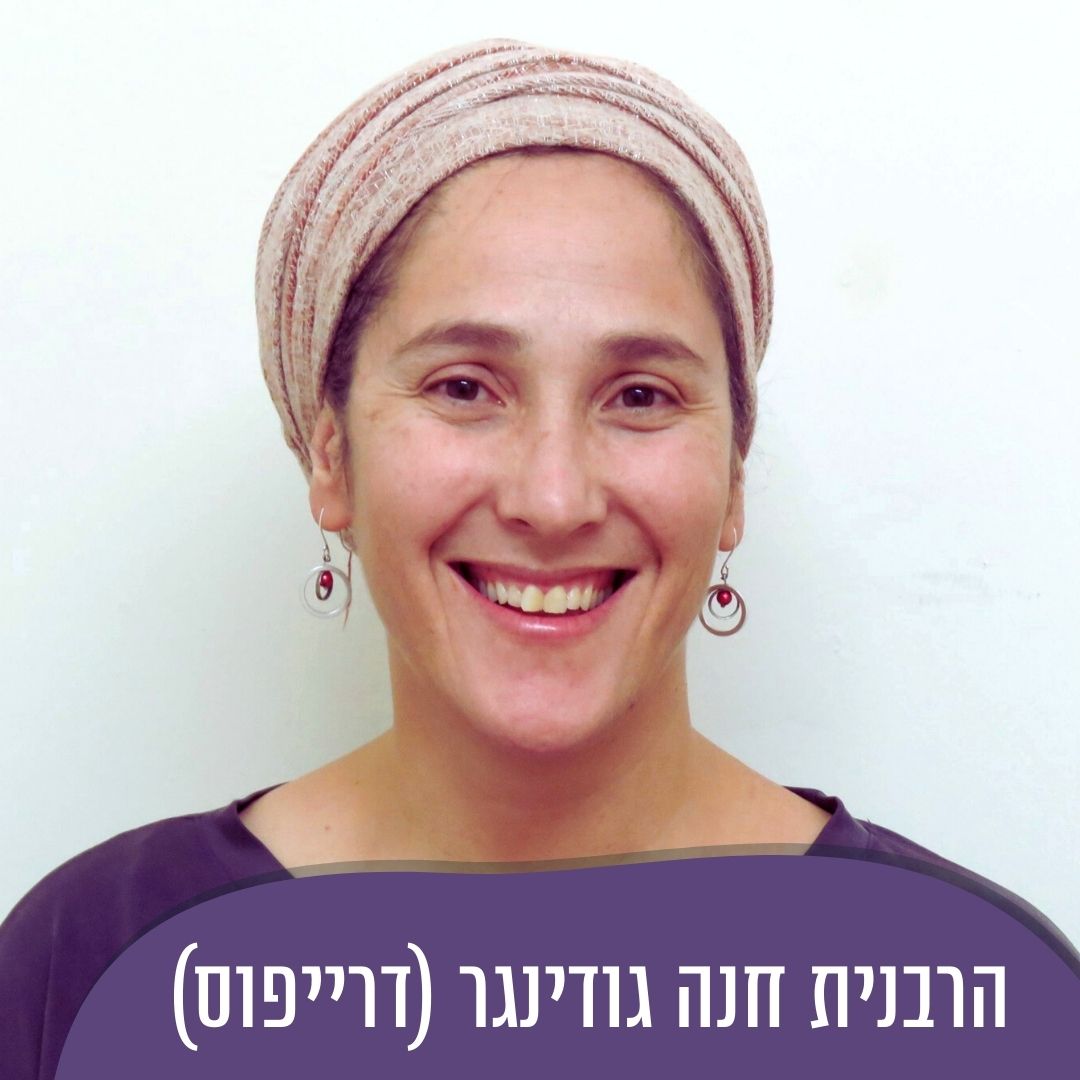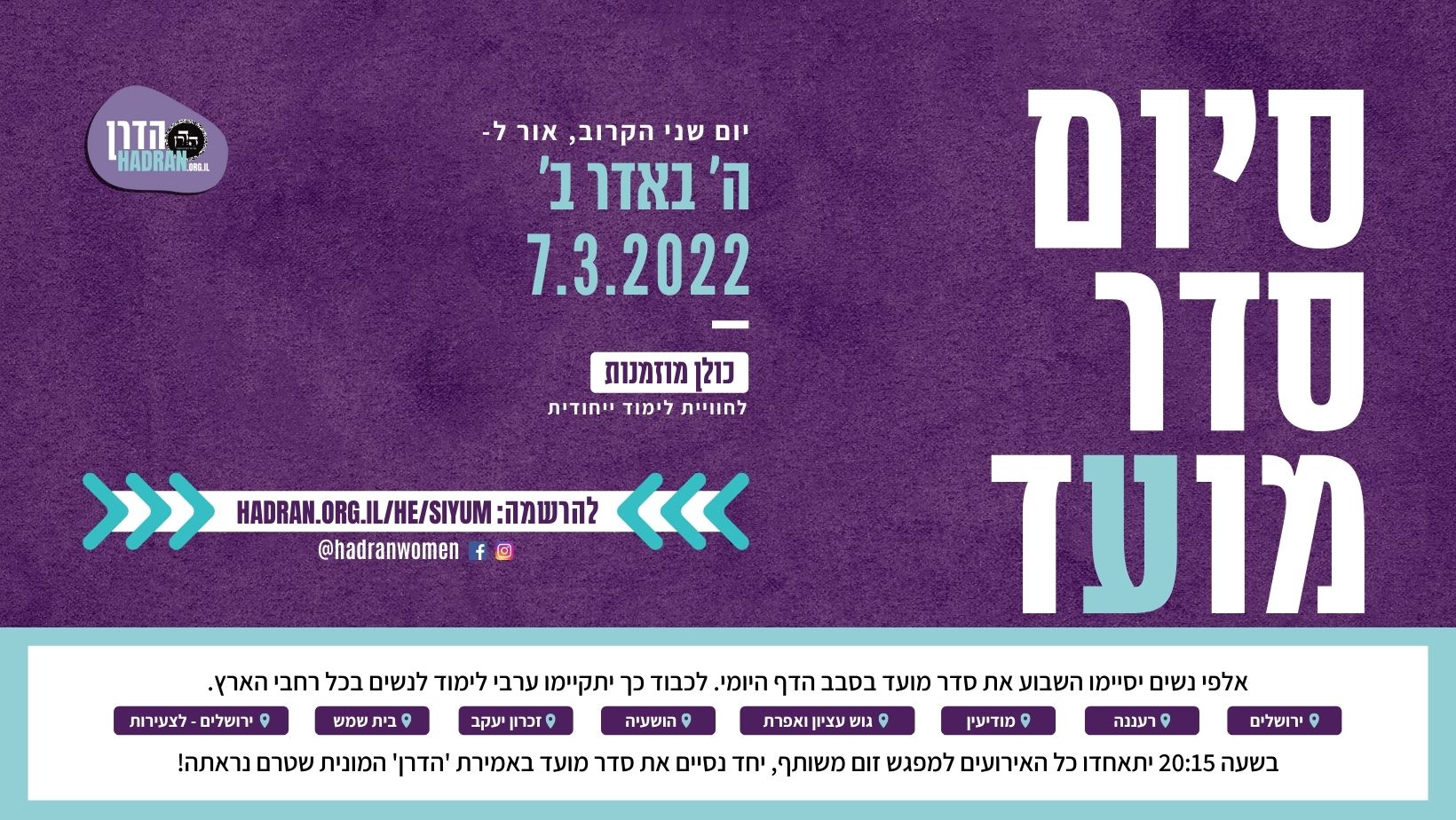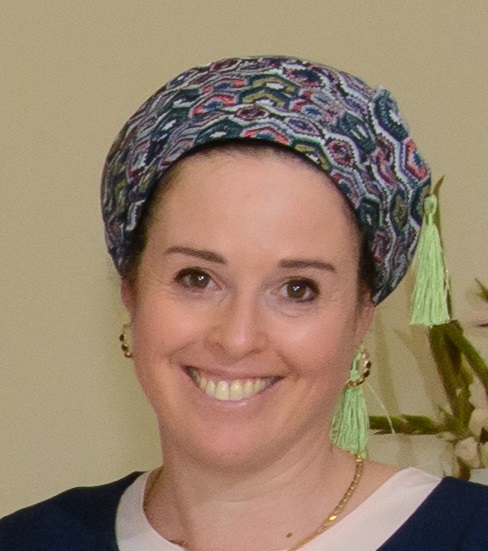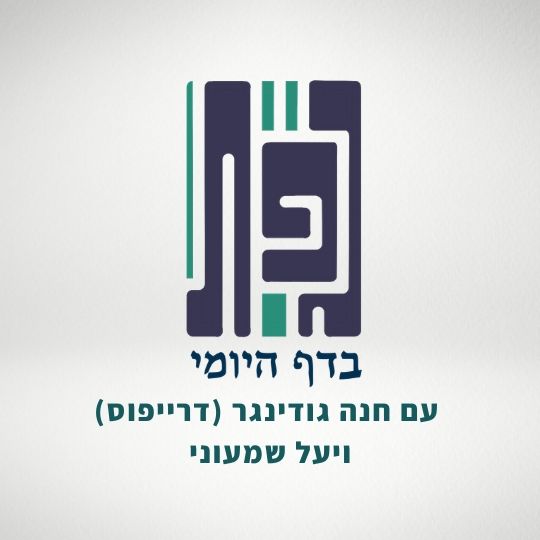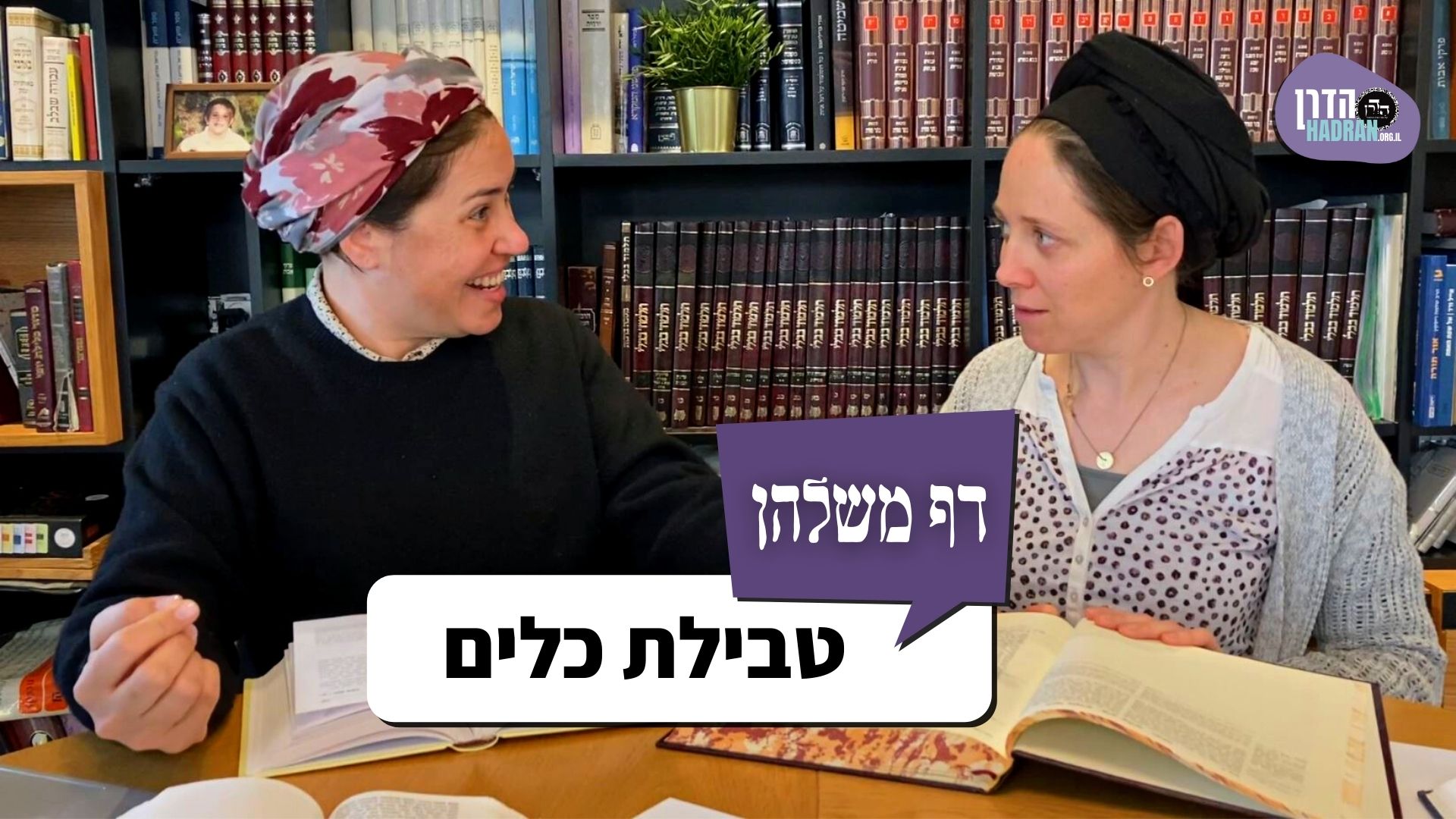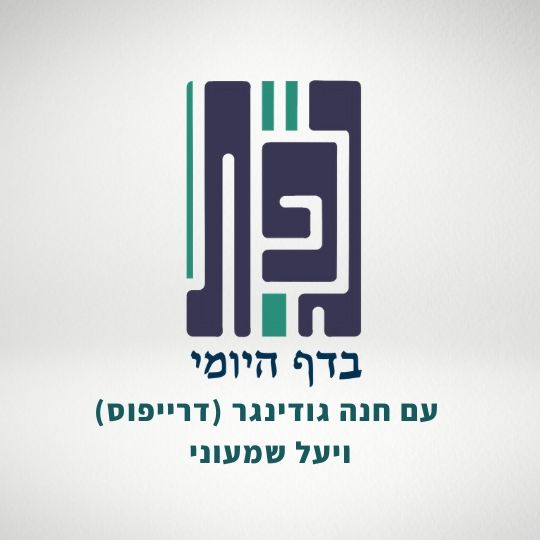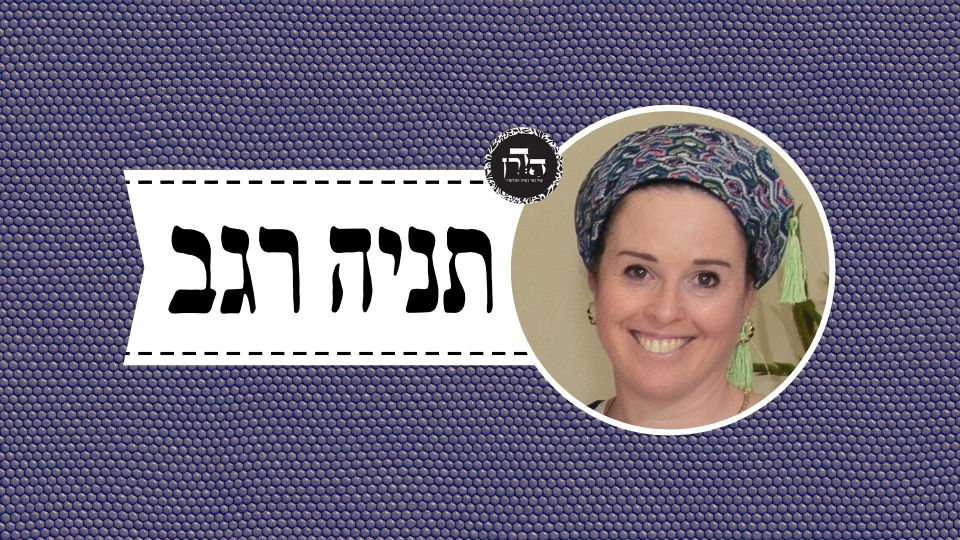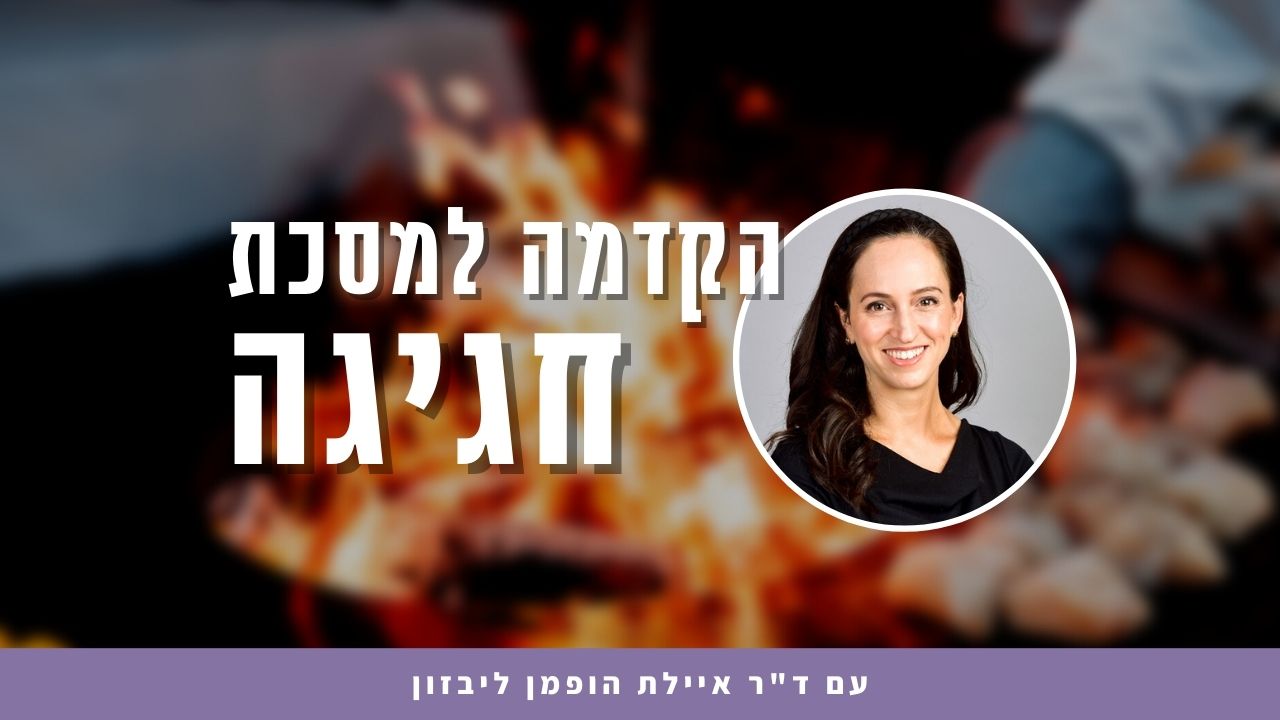חגיגה ט
לֹא שָׁנוּ אֶלָּא שֶׁלֹּא גָּמַר, אֲבָל גָּמַר — חוֹזֵר וּמַקְרִיב.
They taught that one may sacrifice the Festival peace-offering on the first Festival day but not on all seven days, as recorded in the baraita on this amud below, only in a case where he did not finish. However, if he finished, he may go back and sacrifice.
מַאי ״גָּמַר״? אִילֵּימָא גָּמַר קׇרְבְּנוֹתָיו — מַאי מַקְרִיב? אֶלָּא שֶׁלֹּא גָּמַר הַיּוֹם, אֲבָל גָּמַר הַיּוֹם — חוֹזֵר וּמַקְרִיב.
The Gemara asks: What is the meaning of the term: Finish, in this context? If we say it means that he finished sacrificing all of his offerings, what is he going back to sacrifice? Rather, it means that if the day did not end and he still has offerings left over, he may not return to sacrifice those on other Festival days. However, if the day ended and he had not finished sacrificing his offerings, he may go back and sacrifice them. This shows that Rabbi Yoḥanan concedes that in these circumstances it is permitted to sacrifice Festival peace-offerings during the remaining days of the Festival.
מַתְנִי׳ מִי שֶׁלֹּא חָג בְּיוֹם טוֹב הָרִאשׁוֹן שֶׁל חַג — חוֹגֵג אֶת כָּל הָרֶגֶל וְיוֹם טוֹב הָאַחֲרוֹן שֶׁל חַג.
MISHNA: With regard to one who did not celebrate by bringing the Festival peace-offering on the first day of the festival of Sukkot, he may celebrate and bring it during the entire remaining days of the pilgrimage Festival, and even on the final day of the Festival, i.e., on the Eighth Day of Assembly.
עָבַר הָרֶגֶל וְלֹא חָג — אֵינוֹ חַיָּיב בְּאַחְרָיוּתוֹ, עַל זֶה נֶאֱמַר ״מְעֻוָּות לֹא יוּכַל לִתְקוֹן וְחֶסְרוֹן לֹא יוּכַל לְהִמָּנוֹת״.
If the pilgrimage Festival passed and one did not celebrate by bringing the Festival peace-offering, he is not obligated to pay restitution for it. Even if he consecrated an animal for this purpose and it was lost, once the Festival is over he has no obligation to replace it, as he has missed the opportunity for performing this mitzva. And about this it is stated: “That which is crooked cannot be made straight; and that which is wanting cannot be numbered” (Ecclesiastes 1:15).
רַבִּי שִׁמְעוֹן בֶּן מְנַסְּיָיא אוֹמֵר: אֵיזֶהוּ מְעֻוָּות שֶׁאֵינוֹ יָכוֹל לְהִתָּקֵן? זֶה הַבָּא עַל הָעֶרְוָה וְהוֹלִיד מִמֶּנָּה מַמְזֵר. אִם תֹּאמַר בְּגוֹנֵב וְגוֹזֵל — יָכוֹל הוּא לְהַחְזִירוֹ, וִיתַקֵּן.
Rabbi Shimon ben Menasya says: Who is the crooked that cannot be made straight? This verse is referring to one who engaged in intercourse with a woman forbidden to him and fathered a mamzer with her. This individual is unable to rectify his sin, because the status of the illegitimate child is permanent. And if you say that it is referring to one who steals or robs, although he is crooked he can return what he stole and in this manner his sin will be rectified.
רַבִּי שִׁמְעוֹן בֶּן יוֹחַי אוֹמֵר: אֵין קוֹרִין מְעֻוָּות אֶלָּא לְמִי שֶׁהָיָה מְתוּקָּן בַּתְּחִילָּה וְנִתְעַוֵּות, וְאֵי זֶה? זֶה תַּלְמִיד חָכָם הַפּוֹרֵשׁ מִן הַתּוֹרָה.
Rabbi Shimon ben Yoḥai says: One calls crooked only someone who was initially straight and subsequently became crooked. And who is this? This is a Torah scholar who leaves his Torah study. Here is an example of something straight that became crooked.
גְּמָ׳ מְנָהָנֵי מִילֵּי? אָמַר רַבִּי יוֹחָנָן מִשּׁוּם רַבִּי יִשְׁמָעֵאל: נֶאֱמַר ״עֲצֶרֶת״ בִּשְׁבִיעִי שֶׁל פֶּסַח, וְנֶאֱמַר ״עֲצֶרֶת״ בִּשְׁמִינִי שֶׁל חַג. מָה לְהַלָּן לְתַשְׁלוּמִין — אַף כָּאן לְתַשְׁלוּמִין.
GEMARA: The mishna taught that if one did not bring his Festival peace-offering on the first day of the festival of Sukkot, he may bring it even on the Eighth Day of Assembly, despite the fact that it is a separate Festival. The Gemara asks: From where are these matters derived? Rabbi Yoḥanan said in the name of Rabbi Yishmael that this halakha is derived by means of a verbal analogy. It is stated: “Assembly” (Deuteronomy 16:8), with regard to the seventh day of Passover, and it is stated: “Assembly” (Leviticus 23:36), with regard to the eighth day of the festival of Sukkot. Just as there, with regard to Passover, the day of assembly, i.e., the seventh day of Passover, is available for redress, as it is certainly part of the Festival, so too here, in the case of Sukkot, the Eighth Day of Assembly is available for redress.
מוּפְנֶה. דְּאִי לָאו מוּפְנֶה, אִיכָּא לְמִיפְרַךְ: מָה לִשְׁבִיעִי שֶׁל פֶּסַח שֶׁכֵּן אֵינוֹ חָלוּק מִשֶּׁלְּפָנָיו, תֹּאמַר בִּשְׁמִינִי שֶׁל חַג שֶׁחָלוּק מִשֶּׁלְּפָנָיו.
The Gemara adds that the term assembly in each of these contexts is free for this verbal analogy, i.e., it is superfluous in both contexts. As, if it is not free the verbal analogy can be refuted, because each context in which the term appears contains features that do not apply to the other one. What can one say about the seventh day of Passover? That it is not distinct from the days preceding it with regard to the Festival offerings and the prohibition against eating leavened bread. Can you say the same with regard to the eighth day of the festival of Sukkot, which is distinct from the days preceding it, i.e., that the Eighth Day of Assembly does not involve the same mitzvot as the festival of Sukkot?
לָאיֵי אִפְּנוֹיֵי מוּפְנֶה. מִכְּדֵי מַאי ״עֲצֶרֶת״ — עָצוּר בַּעֲשִׂיַּית מְלָאכָה, הָכְתִיב: ״לֹא תַעֲשֶׂה מְלָאכָה״, ״עֲצֶרֶת״ דִּכְתַב רַחֲמָנָא לְמָה לִי? אֶלָּא שְׁמַע מִינַּהּ לְאַפְנוֹיֵי.
However, this is not so [la’ei], as the term assembly is certainly free. Now, what is the meaning of: “assembly [atzeret]”? It means that one is stopped [atzur], i.e., prohibited, from performing labor. But isn’t it already written: “You shall not perform labor” (Deuteronomy 16:8)? Why then do I need this term atzeret that the Merciful One writes? Rather, learn from here that it is free for the verbal analogy.
וְתַנָּא מַיְיתֵי לַהּ מֵהָכָא, דְּתַנְיָא: ״וְחַגּוֹתֶם אוֹתוֹ חַג לַה׳ שִׁבְעַת יָמִים״, יָכוֹל יְהֵא חוֹגֵג וְהוֹלֵךְ כָּל שִׁבְעָה — תַּלְמוּד לוֹמַר: ״אוֹתוֹ״ — אוֹתוֹ אַתָּה חוֹגֵג, וְאִי אַתָּה חוֹגֵג כׇּל שִׁבְעָה. אִם כֵּן לָמָּה נֶאֱמַר ״שִׁבְעָה״ — לְתַשְׁלוּמִין.
The Gemara comments: And a tanna cites proof from here, as it is taught in a baraita with regard to a verse that deals with the festival of Sukkot: “And you shall keep it a feast to the Lord seven days” (Leviticus 23:41). One might have thought that one may continue to celebrate by bringing the Festival peace-offering all seven days of the Festival. Therefore, the verse states: “It,” which teaches: It, i.e., the first day of the Festival, you shall celebrate with these offerings, and you may not celebrate all seven days. If so, why is “seven” stated? For redress, i.e., if one failed to bring an offering on the first day he may do so all seven days.
וּמִנַּיִן שֶׁאִם לֹא חָג יוֹם טוֹב הָרִאשׁוֹן שֶׁל חַג שֶׁחוֹגֵג וְהוֹלֵךְ אֶת כָּל הָרֶגֶל וְיוֹם טוֹב הָאַחֲרוֹן — תַּלְמוּד לוֹמַר: ״בַּחֹדֶשׁ הַשְּׁבִיעִי תָּחֹגּוּ אוֹתוֹ״, אִי ״בַּחֹדֶשׁ הַשְּׁבִיעִי״, יָכוֹל יְהֵא חוֹגֵג וְהוֹלֵךְ הַחֹדֶשׁ כּוּלּוֹ — תַּלְמוּד לוֹמַר: ״אוֹתוֹ״ — אוֹתוֹ אַתָּה חוֹגֵג, וְאִי אַתָּה חוֹגֵג חוּצָה לוֹ.
And from where is it derived that if one did not celebrate by bringing the Festival peace-offering on the first day of the festival of Sukkot that he may continue to celebrate throughout the pilgrimage Festival and even on the last festival day of Sukkot, which is the Eighth Day of Assembly? The verse states: “You shall keep it in the seventh month” (Leviticus 23:41), which indicates that one may bring the Festival offerings even after the seven days of the Festival. If the verse said only: “In the seventh month,” one might have thought that one may continue to celebrate by bringing the offering at any time during the rest of the entire month. Therefore, the verse states: “It,” indicating that you celebrate it, i.e., any of the Festival days, and you may not celebrate outside of these days.
וּמַאי תַּשְׁלוּמִין? רַבִּי יוֹחָנָן אָמַר: תַּשְׁלוּמִין לָרִאשׁוֹן, וְרַבִּי אוֹשַׁעְיָא אָמַר: תַּשְׁלוּמִין זֶה לָזֶה.
§ The Gemara asks: What is the meaning of the concept of redress mentioned in the baraita? The Gemara answers that Rabbi Yoḥanan said: The other days are redress for the first day. If one did not bring the Festival offering on the first day, he may still do so on the remaining days of the Festival. And Rabbi Oshaya said: The days are redress for one another. Each day can be considered the main day of obligation, i.e., if one did not bring the offering on the first available day he may do so on the remaining days.
מַאי בֵּינַיְיהוּ? אָמַר רַבִּי זֵירָא: חִיגֵּר בְּיוֹם רִאשׁוֹן וְנִתְפַּשֵּׁט בְּיוֹם שֵׁנִי אִיכָּא בֵּינַיְיהוּ. רַבִּי יוֹחָנָן אָמַר: תַּשְׁלוּמִין לָרִאשׁוֹן, כֵּיוָן דְּלָא חֲזֵי בָּרִאשׁוֹן — לָא חֲזֵי בַּשֵּׁנִי. וְרַבִּי אוֹשַׁעְיָא אָמַר: תַּשְׁלוּמִין זֶה לָזֶה, אַף עַל גַּב דְּלָא חֲזֵי בָּרִאשׁוֹן — חֲזֵי בִּשְׁנֵי.
The Gemara asks: What is the practical difference between these two explanations? Rabbi Zeira said: The practical difference between them is in a case of one who was lame on the first day of the Festival and was healed on the second day. Rabbi Yoḥanan said that the other days are redress for the first day; since he was not fit, i.e., was not qualified to sacrifice his offerings on the first day, he is not fit to do so even on the second, as the second day is redress for the first. The second day is not for those who were completely exempt on the first, but for those who were obligated to sacrifice but neglected to do so. And Rabbi Oshaya said that the days are redress for one another. Consequently, even though he was not fit to bring the offering on the first day, he is fit to do so on the second. Since a separate obligation applies on each day, even if one was unfit to bring the offering on the first day he must do so when he becomes fit.
וּמִי אָמַר רַבִּי יוֹחָנָן הָכִי?
The Gemara asks: And did Rabbi Yoḥanan actually say this? Rabbi Yoḥanan was involved in a dispute with regard to a nazirite. A nazirite who becomes ritually impure as a result of contact with a corpse must undergo a seven-day process of ritual purification, after which he must bring a set of offerings and restart counting the days of his nazirite period. Usually, a nazirite may bring one set of offerings even for many occurrences of ritual impurity. However, if he came into contact with a corpse for a second time on the eighth day after he first became ritually impure he must bring two sets of offerings, as the second impurity occurred at a time when he could have begun counting the days of his nazirite vow again. The amora’im dispute the details of this halakha.
וְהָאָמַר חִזְקִיָּה: נִטְמָא בַּיּוֹם — מֵבִיא, בַּלַּיְלָה — אֵינוֹ מֵבִיא.
The Gemara continues. Didn’t Ḥizkiya say that if a nazirite became ritually impure on the eighth day itself, he brings a second set of offerings? However, if he became ritually impure on the previous night he does not bring an additional set of offerings, because he could not have brought the offering at night. Although seven complete days have passed, as he did not yet have the opportunity to bring the offering, it is as though his seven days were not yet complete. Consequently, he may still bring one set of offerings for the two instances of ritual impurity.
וְרַבִּי יוֹחָנָן אָמַר: אַף בַּלַּיְלָה נָמֵי מֵבִיא.
And Rabbi Yoḥanan said: Even if the nazirite became ritually impure on the night on which the eighth day begins, he also brings a second set of offerings. Rabbi Yoḥanan maintains that this nazirite is effectively ready to begin counting the days of his vow again, as only the technicality that one may not bring offerings at night prevents him from doing so. This shows that according to the opinion of Rabbi Yoḥanan, even when one is incapable of sacrificing his offerings, his obligation remains intact. So too, in the case of a lame person, his obligation to bring the Festival offering applies in theory even on the first day, which means that he should be able to bring the offerings at a later date during the Festival.
אָמַר רַבִּי יִרְמְיָה: שָׁאנֵי טוּמְאָה, דְּיֵשׁ לָהּ תַּשְׁלוּמִין בְּפֶסַח שֵׁנִי.
Rabbi Yirmeya said: The case of one who cannot bring an offering due to ritual impurity is different. He is not completely disqualified, as there is redress for ritual purity. This can be demonstrated from the halakha of the second Pesaḥ. Just as one who is ritually impure and may not sacrifice the Paschal offering has the opportunity to redress the situation by means of the second Pesaḥ, so too, anyone who cannot bring an offering due to impurity may redress this at a later date.
מַתְקֵיף לַהּ רַב פָּפָּא: הָנִיחָא לְמַאן דְּאָמַר פֶּסַח
Rav Pappa strongly objects to this reasoning: This works out well according to the one who said that the second Pesaḥ
שֵׁנִי — תַּשְׁלוּמִין דְּרִאשׁוֹן הוּא. אֶלָּא לְמַאן דְּאָמַר שֵׁנִי רֶגֶל בִּפְנֵי עַצְמוֹ הוּא, מַאי אִיכָּא לְמֵימַר?
is redress for the first Paschal offering. According to this opinion, it is clear that ritual impurity does not nullify one’s obligation. However, according to the one who said that the second Pesaḥ is a separate pilgrimage Festival, established for those who were unable to sacrifice the Paschal offering at the proper time, what is there to say? In that case, Rav Yirmeya’s answer does not apply, and therefore it remains unclear that Rabbi Yoḥanan holds that one who is not obligated in the Festival offerings on the first day is exempt during the remaining days.
אֶלָּא אָמַר רַב פָּפָּא: קָסָבַר רַבִּי יוֹחָנָן לַיְלָה אֵינוֹ מְחוּסַּר זְמַן. וּמִי אָמַר רַבִּי יוֹחָנָן הָכִי?
Rather, Rav Pappa said: Rabbi Yoḥanan holds that night is not considered part of a date whose time has not yet arrived. Although one may not sacrifice offerings at night, the date itself has arrived and his period of impurity is complete, which is why any further impurity requires a second set of offerings. Consequently, Rabbi Yoḥanan’s opinion with regard to a lame person does not contradict his ruling concerning a nazirite. The Gemara asks: And did Rabbi Yoḥanan actually say this, that night is not considered part of a date whose time has not yet arrived?
וְהָאָמַר רַבִּי יוֹחָנָן: רָאָה אַחַת בַּלַּיְלָה וּשְׁתַּיִם בַּיּוֹם — מֵבִיא.
But didn’t Rabbi Yoḥanan say: A zav at the end of his seven-day purification process who saw that he experienced one emission at night and then two in the day brings additional offerings for the second impurity? Had he experienced the emissions before he became ritually pure, he would have been required to bring only one set of offerings. However, once his purification is complete he must bring a separate set. In this case, the first emission occurred before he was able to sacrifice the offerings for his initial period of impurity. Nevertheless, as the two subsequent sightings occurred during the day, and they alone would suffice to confer upon him the status of a zav, they combine with the one from the previous night and he is required to bring new offerings.
שְׁתַּיִם בַּלַּיְלָה וְאַחַת בַּיּוֹם — אֵינוֹ מֵבִיא. וְאִי סָלְקָא דַעְתָּךְ קָסָבַר רַבִּי יוֹחָנָן לַיְלָה אֵינוֹ מְחוּסַּר זְמַן, אֲפִילּוּ שְׁתַּיִם בַּלַּיְלָה וְאַחַת בַּיּוֹם — מֵבִיא!
However, if he saw two emissions at night and one in the day, he does not bring additional offerings, because at night he could not yet sacrifice the offerings owed due to his current status, and without those two new sightings he would not become a zav again. And if it enters your mind that Rabbi Yoḥanan holds that night is not considered a date whose time has not yet arrived, then even in the case where he saw two emissions at night and one in the day he should have to bring another set of offerings. He already reached the date of sacrificing the previous offerings before these new emissions occurred. This indicates that Rabbi Yoḥanan holds that night is considered part of a date whose time has not yet arrived.
כִּי קָאָמַר רַבִּי יוֹחָנָן, לְדִבְרֵי הָאוֹמֵר לַיְלָה מְחוּסַּר זְמַן, לְדִבְרֵי הָאוֹמֵר — פְּשִׁיטָא! שְׁתַּיִם בַּיּוֹם וְאַחַת בַּלַּיְלָה אִצְטְרִיכָא לֵיהּ.
The Gemara answers: When Rabbi Yoḥanan said this statement, he spoke according to the one who says that night is considered part of a date whose time has not yet arrived. However, he himself maintains that even if a zav saw all three emissions at night he must bring another offering. The Gemara asks: If he spoke only according to the one who says that opinion, it is obvious that no new offerings are required; what novel idea did Rabbi Yoḥanan intend to express? The Gemara answers: Nevertheless, it was necessary for him to teach the case of a zav who saw two in the day and one at night.
סָלְקָא דַּעְתָּךְ אָמֵינָא כְּאַתְקַפְתָּא דְּרַב שִׁישָׁא בְּרֵיהּ דְּרַב אִידִי, קָא מַשְׁמַע לַן כִּדְרַב יוֹסֵף.
The Gemara elaborates: It was necessary for Rabbi Yoḥanan to say this, lest it enter your mind to say in the manner of the strong objection of Rav Sheisha, son of Rav Idi (see Keritot 8a), who holds that there is no reason to distinguish between a zav seeing one or two emissions at night. Therefore, Rabbi Yoḥanan teaches us that the halakha is in accordance with the opinion of Rav Yosef, that the first sighting confers merely the status of ritual impurity of one who has a seminal emission, and he is not yet classified as a zav. Consequently, there is a difference between one who experienced one emission at night and one who experienced two.
עָבַר הָרֶגֶל וְלֹא חָג אֵינוֹ חַיָּיב בְּאַחְרָיוּתוֹ, וְעַל זֶה נֶאֱמַר: ״מְעֻוָּת לֹא יוּכַל לִתְקוֹן וְחֶסְרוֹן לֹא יוּכַל לְהִימָּנוֹת״.
§ The mishna taught that if the pilgrimage Festival passed and one did not celebrate it by sacrificing a Festival peace-offering, he is not obligated to pay restitution for it. And about this it is stated: “That which is crooked cannot be made straight; and that which is wanting cannot be numbered” (Ecclesiastes 1:15).
אֲמַר לֵיהּ בַּר הֵי הֵי לְהִלֵּל: הַאי ״לְהִימָּנוֹת״, לְהִמָּלאוֹת מִיבְּעֵי לֵיהּ. אֶלָּא, זֶה (שֶׁמִּנּוּהוּ) [שֶׁנִּמְנוּ] חֲבֵירָיו לִדְבַר מִצְוָה, וְהוּא לֹא נִמְנָה עִמָּהֶן.
The Sage bar Hei Hei said to Hillel that if this is the correct interpretation of the verse, this term: “Be numbered [lehimanot]” is apparently inappropriate. It should have said: Be filled. Rather, this verse is referring to one whose friends reached a consensus [manuhu] with regard to a matter of a mitzva and he was not part of their consensus, and therefore he missed his opportunity to join them in the performance of the mitzva.
תַּנְיָא נָמֵי הָכִי: ״מְעֻוָּת לֹא יוּכַל לִתְקוֹן״ — זֶה שֶׁבִּיטֵּל קְרִיאַת שְׁמַע שֶׁל שַׁחֲרִית, אוֹ קְרִיאַת שְׁמַע שֶׁל עַרְבִית, אוֹ שֶׁבִּיטֵּל תְּפִלָּה שֶׁל שַׁחֲרִית אוֹ תְּפִלָּה שֶׁל עַרְבִית. ״וְחֶסְרוֹן לֹא יוּכַל לְהִימָּנוֹת״ — זֶה שֶׁנִּמְנוּ חֲבֵירָיו לִדְבַר מִצְוָה וְהוּא לֹא נִמְנָה עִמָּהֶן.
This explanation is also taught in a baraita. The meaning of the verse “That which is crooked cannot be made straight; and that which is wanting cannot be numbered” is as follows: “That which is crooked cannot be made straight” is referring to one who omitted the recitation of the morning Shema or the recitation of the evening Shema, or who omitted the morning prayer or the evening prayer. “And that which is wanting cannot be numbered” is referring to one whose friends reached a consensus with regard to a matter of a mitzva and he was not part of their consensus.
אֲמַר לֵיהּ בַּר הֵי הֵי לְהִלֵּל, מַאי דִּכְתִיב: ״וְשַׁבְתֶּם וּרְאִיתֶם בֵּין צַדִּיק לְרָשָׁע בֵּין עוֹבֵד אֱלֹהִים לַאֲשֶׁר לֹא עֲבָדוֹ״, הַיְינוּ ״צַדִּיק״ — הַיְינוּ ״עוֹבֵד אֱלֹהִים״, הַיְינוּ ״רָשָׁע״ — הַיְינוּ ״אֲשֶׁר לֹא עֲבָדוֹ״! אֲמַר לֵיהּ: ״עֲבָדוֹ״ וְ״לֹא עֲבָדוֹ״ — תַּרְוַיְיהוּ צַדִּיקֵי גְּמוּרֵי נִינְהוּ, וְאֵינוֹ דּוֹמֶה שׁוֹנֶה פִּרְקוֹ מֵאָה פְּעָמִים, לְשׁוֹנֶה פִּרְקוֹ מֵאָה וְאֶחָד.
The Gemara records another discussion between bar Hei Hei and Hillel. Bar Hei Hei said to Hillel: What is the meaning of that which is written: “Then you shall again discern between the righteous and the wicked, between he who serves God and he who does not serve Him” (Malachi 3:18). There are two redundancies here: “The righteous” is the same as “he who serves God,” and “the wicked” is the same as “he who does not serve Him.” Hillel said to him: The one “who serves Him” and the one “who does not serve Him” are both referring to completely righteous people. But the verse is hinting at a distinction between them, as one who reviews his studies one hundred times is not comparable to one who reviews his studies one hundred and one times.
אֲמַר לֵיהּ: וּמִשּׁוּם חַד זִימְנָא קָרֵי לֵיהּ ״לֹא עֲבָדוֹ״? אֲמַר לֵיהּ: אִין, צֵא וּלְמַד מִשּׁוּק שֶׁל חֲמָרִין: עַשְׂרָה פַּרְסֵי — בְּזוּזָא, חַד עֲשַׂר פַּרְסֵי — בִּתְרֵי זוּזֵי.
Bar Hei Hei said to him: And due to one extra time that he did not review, the verse calls him a person “who does not serve Him”? He said to him: Yes. Go and learn from the market of donkey drivers. One can hire a driver to travel up to ten parasangs for one dinar. However, he will travel eleven parasangs only for two dinars. This shows that any departure beyond the norm is considered a significant difference.
אֲמַר לֵיהּ אֵלִיָּהוּ לְבַר הֵי הֵי, וְאָמְרִי לַהּ לְרַבִּי אֶלְעָזָר: מַאי דִּכְתִיב: ״הִנֵּה צְרַפְתִּיךָ וְלֹא בְכָסֶף בְּחַרְתִּיךָ בְּכוּר עוֹנִי״ — מְלַמֵּד שֶׁחָזַר הַקָּדוֹשׁ בָּרוּךְ הוּא עַל כׇּל מִדּוֹת טוֹבוֹת לִיתֵּן לְיִשְׂרָאֵל, וְלֹא מָצָא אֶלָּא עֲנִיּוּת. אָמַר שְׁמוּאֵל וְאִיתֵּימָא רַב יוֹסֵף, הַיְינוּ דְּאָמְרִי אִינָשֵׁי: יָאָה עַנְיוּתָא לִיהוּדָאֵי כִּי בַּרְזָא סוּמָּקָא לְסוּסְיָא חִיוָּרָא.
The Gemara relates that Elijah the Prophet said to bar Hei Hei, and some say that he said this to Rabbi Elazar: What is the meaning of that which is written: “Behold, I have refined you, but not as silver; I have tried you in the furnace of affliction [oni]” (Isaiah 48:10)? This teaches that the Holy One, Blessed be He, sought after all good character traits to impart them to the Jewish people, and He found only poverty [aniyut] capable of preventing them from sin. Shmuel said, and some say it was Rav Yosef: This explains the folk saying that people say: Poverty is good for the Jewish people like a red bridle [barza] for a white horse. Just as a red bridle accentuates the white color of the horse, so the challenge of poverty draws out the purity of the Jewish people.
רַבִּי שִׁמְעוֹן בֶּן מְנַסְיָא אוֹמֵר: אֵי זֶה הוּא ״מְעֻוָּת לֹא יוּכַל לִתְקוֹן״ — זֶה הַבָּא עַל הָעֶרְוָה וְהוֹלִיד מִמֶּנָּה מַמְזֵר וְכוּ׳. הוֹלִיד — אִין, לֹא הוֹלִיד — לָא?
§ The mishna taught that Rabbi Shimon ben Menasya says: Who is the crooked that cannot be made straight? This verse is referring to one who engaged in intercourse with a woman forbidden to him and fathered a mamzer with her. The Gemara infers from the mishna: If he fathers a child, yes, this verse applies, as he cannot remedy the situation; if he does not father a child, no, the verse does not apply, as he can make amends.
וְהָא תַּנְיָא, רַבִּי שִׁמְעוֹן בֶּן מְנַסְיָא אוֹמֵר: גּוֹנֵב אָדָם — אֶפְשָׁר שֶׁיַּחֲזִיר גְּנֵבוֹ וִיתַקֵּן, גּוֹזֵל אָדָם — אֶפְשָׁר שֶׁיַּחֲזִיר גְּזֵלוֹ וִיתַקֵּן, אֲבָל הַבָּא עַל אֵשֶׁת אִישׁ וַאֲסָרָהּ לְבַעְלָהּ — נִטְרַד מִן הָעוֹלָם וְהָלַךְ לוֹ.
The Gemara asks: Isn’t it taught in a baraita that Rabbi Shimon ben Menasya says: If a person steals it is possible that he might return his stolen property and be made straight; if a person robs from another it is possible that he might return his robbed property and be made straight. However, one who has sexual relations with a married woman with her consent and thereby renders her forbidden to her husband is banished from the world and passes away. There is no way for him to rectify the situation and achieve atonement, because a married woman who willingly has sexual relations with another man is permanently forbidden to her husband.
רַבִּי שִׁמְעוֹן בֶּן יוֹחַי אוֹמֵר: אֵין אוֹמֵר ״בַּקְּרוּ גָּמָל״ ״בַּקְּרוּ חֲזִיר״, אֶלָּא ״בַּקְּרוּ טָלֶה״. וְאֵי זֶה — זֶה תַּלְמִיד חָכָם שֶׁפֵּירַשׁ מִן הַתּוֹרָה.
Rabbi Shimon ben Yoḥai says: Someone who wants to examine an animal for blemishes to bring it as an offering does not say: Inspect the camel, or: Inspect the pig, as these are inherently disqualified for the altar. Rather, he says: Inspect the lamb. Similarly, the term: “Crooked,” applies only to one who was previously straight. And who is this? This is a Torah scholar who leaves his Torah study.
רַבִּי יְהוּדָה בֶּן לָקִישׁ אָמַר: כׇּל תַּלְמִיד חָכָם שֶׁפֵּירַשׁ מִן הַתּוֹרָה, עָלָיו הַכָּתוּב אוֹמֵר: ״כְּצִפּוֹר נוֹדֶדֶת מִן קִנָּהּ כֵּן אִישׁ נוֹדֵד מִמְּקוֹמוֹ״, וְאוֹמֵר: ״מַה מָּצְאוּ אֲבוֹתֵיכֶם בִּי עָוֶל כִּי רָחֲקוּ מֵעָלָי״!
Rabbi Yehuda ben Lakish said: Any Torah scholar who leaves the Torah, about him the verse says: “As a bird that wanders from her nest, so is a man who wanders from his place” (Proverbs 27:8). And it says: “What unrighteousness have your fathers found in Me, that they are gone far from Me?” (Jeremiah 2:5). This indicates that the punishment is greater for one who was close to God and became distant from Him. In any case, there is a contradiction here, as in the mishna Rabbi Shimon ben Menasya says that the act of one who fathers an illegitimate child is crooked and cannot be straightened, whereas in the baraita he says the same applies to anyone who has forbidden sexual relations, regardless of whether or not he fathers a child.
לָא קַשְׁיָא: כָּאן בַּאֲחוֹתוֹ פְּנוּיָה, כָּאן בְּאֵשֶׁת אִישׁ. וְאִי בָּעֵית אֵימָא: הָא וְהָא בְּאֵשֶׁת אִישׁ, וְלָא קַשְׁיָא: כָּאן
The Gemara answers: This is not difficult. Here, the mishna is dealing with a case where he had forbidden sexual relations with his unmarried sister. Although the intercourse itself is a severe sin, if he does not sire a child it can be rectified through repentance. There, in the baraita, it is referring to a case where he sinned with a married woman, causing irreparable damage to her marriage. And if you wish, say instead: This and that are both referring to a married woman. And it is not difficult. Here, the mishna is dealing

